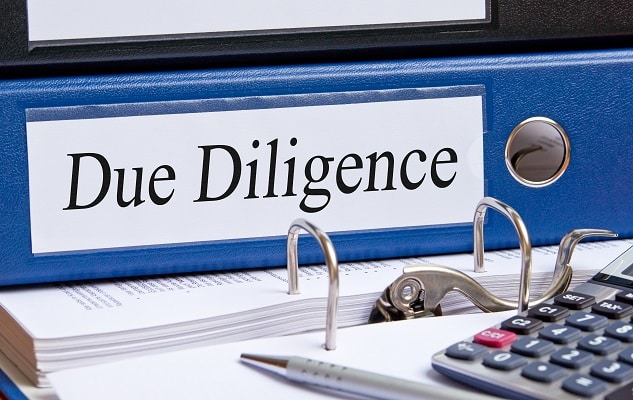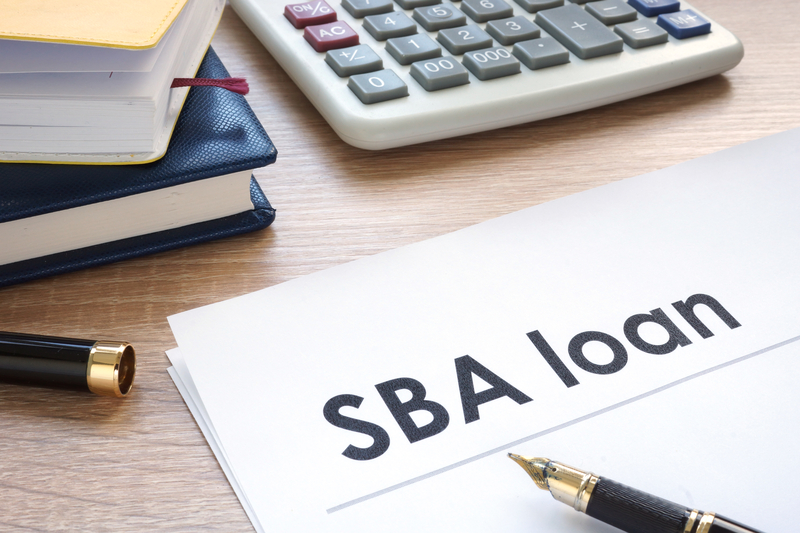After an offer for your business has been made and accepted the next step is Due Diligence where the buyer will review the books and records of the business to verify the revenue, earnings and veracity of the business. Due Diligence is a Contingency for both Buyer and Seller; the buyer’s deposit check is not cashed and Escrow is not opened until after both buyer and seller have removed this contingency. When the Due Diligence Contingency is removed the Business Broker will send the Purchase Agreement documents and buyer’s deposit check to Escrow. Escrow will deposit the buyer’s earnest money deposit check into their trust account, draft the escrow documents, and once these documents are signed Escrow is opened.
During the Due Diligence process, the role of your Business Broker is to organize and facilitate the process and most importantly keep it on track. The buyer and seller may engage other advisors (see below) to assist and advise them during the Due Diligence process. At Pacific Business Sales our team will guide you through the sale of your business from start to finish. We facilitate and coordinate Due Diligence with the buyer, seller, and their advisors to ensure the process stays on track and is completed in a timely manner.
Read more about Due Diligence
BizBuySell.com Learning Center – Due Diligence Checklist
Live Oak Bank Due Diligence Checklist
Due Diligence Timeline
Due Diligence typically takes 3 to 4 weeks for a small to midsize business and can take longer for larger or more complicated businesses; or if the records and business information are not readily available from the seller. At Pacific Business Sales we use the CABB (California Association of Business Brokers) Purchase Agreements for both business Asset Sale and Stock Sale transactions. The CABB agreement breaks down Due Diligence into three steps shown below with the number of calendar days specified for each step. The number of days is specified by the buyer when the offer is prepared with the Business Broker.
- Buyer Due Diligence List: typically 3 to 5 days
- Due Diligence Materials Provided: typically 5 to 7 days
- Review of Due Diligence Materials: typically 10 to 14 days for small to midsize transactions, may be longer for larger or more complex transactions.
- Total number of days for Due Diligence: typically 20 to 30 days.
After the Due Diligence period, each party removes the Due Diligence Contingency and the broker will open escrow. Should either party decide not to remove the Due Diligence Contingency the transaction is terminated and the buyer’s deposit is returned in full (see Wrapping Up Due Diligence below).
Typical Due Diligence Items
Below is a typical Due Diligence list for a small to midsize business. Note that different businesses and industries will have additional items specific to that business or industry and the buyer’s CPA or financial advisor may have additional items they wish to review. If the transaction is a Stock Sale, there will be additional items relating to corporate records that require review.
- Seller Disclosure Statement (part of CABB Purchase Agreement).
- Business Tax Returns, last 3 years.
- Sales Tax Returns (if the Seller has a resale account).
- Bank statements (month by month), last 3 years and year to date.
- Last 3 years P&L statements.
- Balance Sheets for last year end and most recent month end.
- Sales by product or service type/category.
- Customer list (note in some cases this may be redacted for confidentiality).
- A/R and A/R aging report.A/P report.
- Employee list with roles and responsibilities.
- Payroll reports for last 2 or 3 years with W2s.
- Inventory and inventory reports.
- Workman’s Comp policy, mod rate, and claims report.
- General Liability policy.
- Current Lease.
- Equipment list.
- Buyer’s CPA may have additional items requested for review.
- Note that lien searches, releases from state agencies including EDD, Franchise Tax Board, and Dept of Fees (formerly State Board of Equalization), and public notice to creditors are done by escrow once escrow is opened.
Due Diligence Advisors
In many transactions, the buyer and seller opt to conduct the Due Diligence review on their own. This is typical for small transactions where the financial statements and other records are straightforward. Some buyers may engage a CPA to assist them with the financial review and if the transaction is a Stock Sale the buyer may also engage an attorney to review the corporate records. Likewise, some sellers may need to engage their CPA or accountant to provide the requested financial information to the buyer and answer questions about the P&L, Balance Sheet, expenses, tax returns, and owner benefits/expense add backs.
- CPA or financial advisor representing the buyer if buyer opts to engage one.
- Seller’s CPA, accountant or bookkeeper to answer questions about financial statements.
- Buyer’s attorney if buyer opts to engage one (typically for larger transactions and on Stock Sales). The buyer may also use their attorney to draft a consulting agreement with the seller or other specific agreements if required.
- Seller’s attorney if required such as in a Stock Sale to do the stock certificates and stock transactions.
- Buyer and seller’s insurance brokers.
The Business Broker representing the seller and/or buyer if they are a dual agent cannot act as an advisor to either party with respect to Due Diligence as they are not a CPA or accountant and cannot provide financial or legal advice to either party. The broker can facilitate the Due Diligence process and assist buyer and seller in organizing the process and answer questions relating to the transaction.
Seller’s Due Diligence
Much of the focus of Due Diligence is on the buyer side, but there is also a seller Due Diligence contingency. During the Due Diligence period the seller has the opportunity to review the buyer’s qualifications, financial wherewithal to complete the transaction and ability to run the business. Typical seller Due Diligence items are:
- Buyer Resume.
- Buyer Disclosure Statement (part of CABB Purchase Agreement)
- Buyer Personal Financial Statement (often a copy of their SBA loan application).
- Source of Funds.
- Background Check (this is not always requested but can be).
Wrapping Up Due Diligence
At the end of the Due Diligence period the Business Broker will send buyer and seller a Due Diligence Contingency Removal and Authorization to Open Escrow document for signature. When the Contingency Removal is signed the broker will send the purchase agreement documents and buyer deposit check to escrow to draft Escrow docs, obtain signatures and open Escrow.
If the parties require more time both can agree, and the broker will write an addendum to the Purchase Agreement extending the Due Diligence period.
If the buyer has found problems during Due Diligence the first step is to review the issues with the seller. Often the perceived issues are either a misunderstanding of the financial statements, a result of missing information, or a minor issue that is resolved after review with the seller.
If the issue is significant there are three options 1) negotiate an accommodation with the seller which may involve price or terms, 2) accept the agreement as is if the issue is not significant, 3) terminate the agreement in which case the buyer’s deposit check is returned in full and the transaction is cancelled.
Due Diligence is perhaps one of the most important steps in purchasing a business, second only to the actual purchase agreement and negotiation. With the help of a professional Business Broker to prepare and negotiate the offer and facilitate the process you can look forward to a timely and successful transaction.





